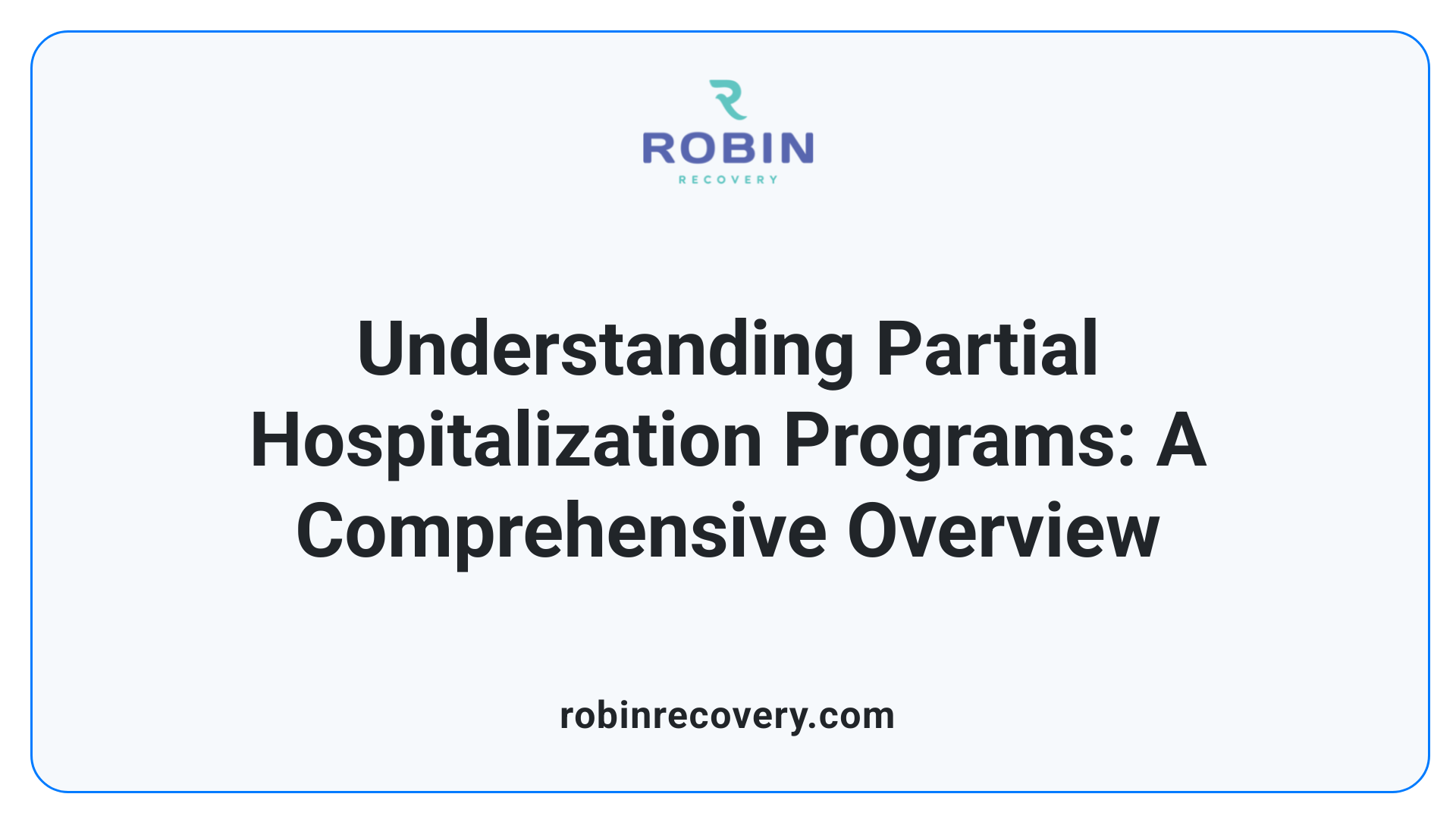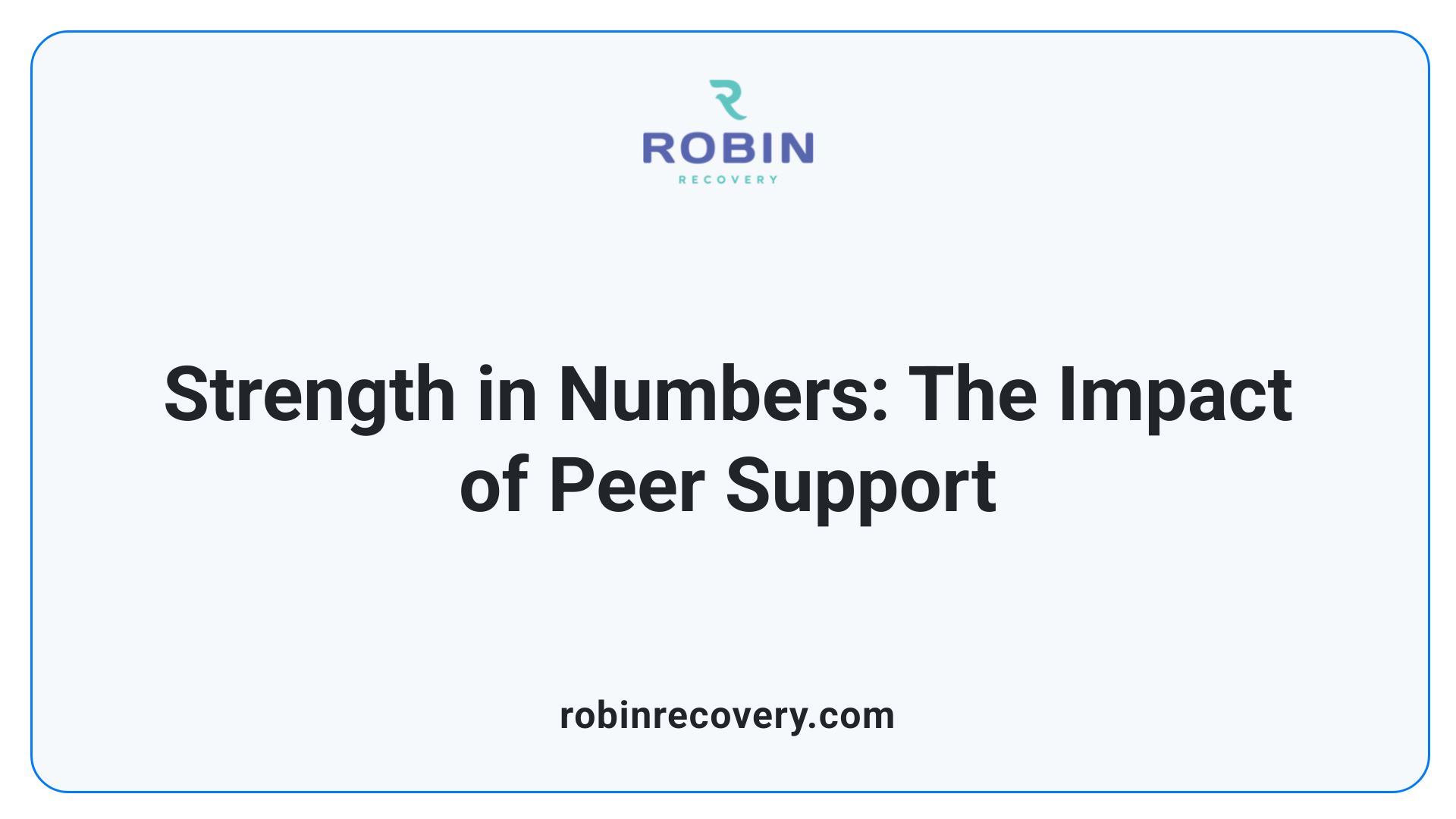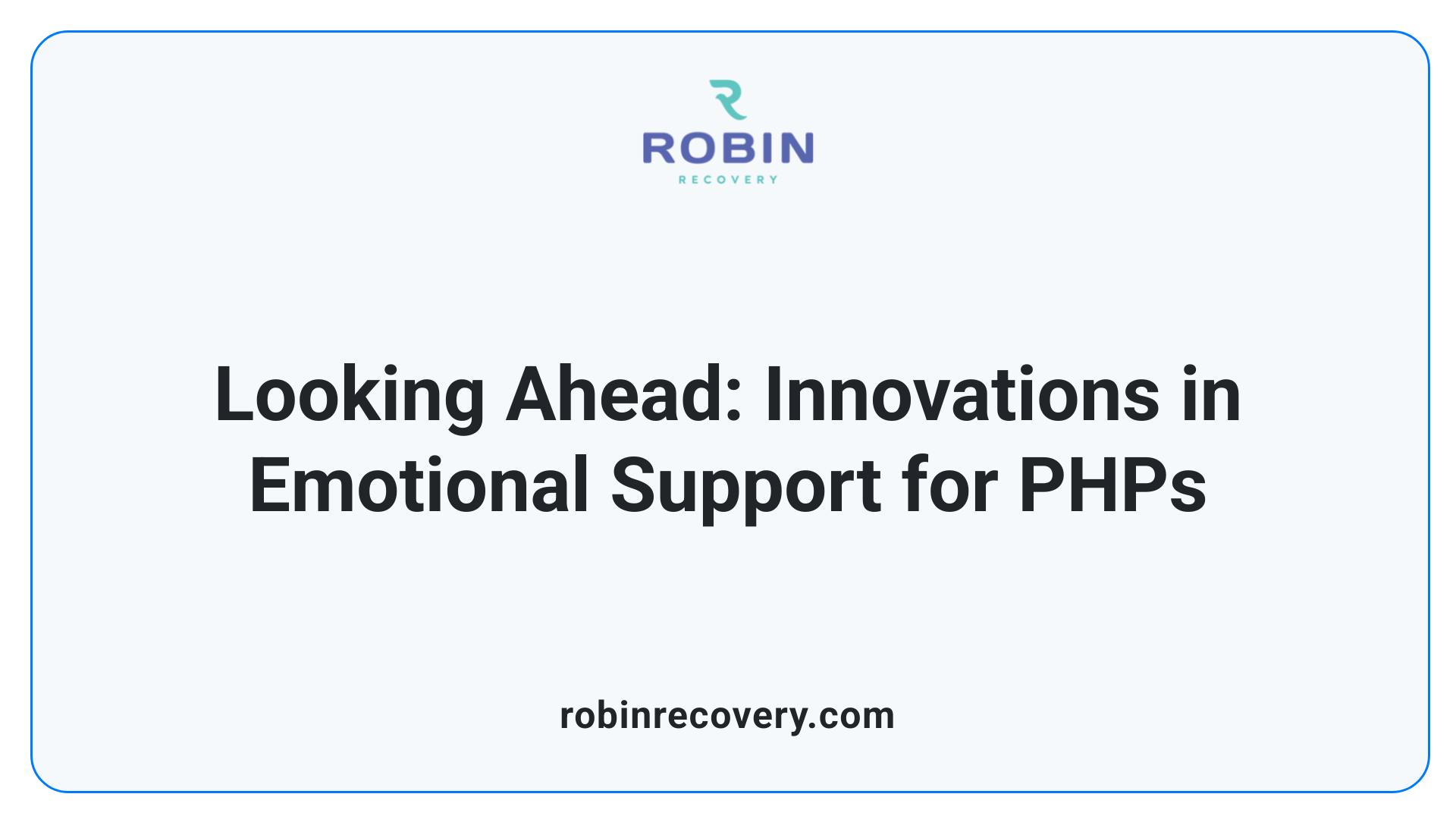The Role of Emotional Support in PHP Success

Understanding PHPs and Their Importance in Mental Health Treatment
Partial Hospitalization Programs (PHPs) represent a crucial facet of mental health recovery, bridging the gap between outpatient care and inpatient hospitalization. These programs offer patients comprehensive support through a balanced approach that integrates therapy, medication management, and community support, while allowing them to maintain daily routines. The structured yet flexible nature of PHPs makes them ideal for treating a range of mental health issues, from anxiety and depression to addiction and eating disorders. At the heart of PHP success lies the role of emotional support, which can significantly enhance recovery outcomes by providing patients with motivation, stability, and a sense of belonging. This article delves into the dynamics of emotional support within PHPs, examining its impact on patient success and overall recovery.
What is a Partial Hospitalization Program (PHP)?

What is a PHP in mental health?
A Partial Hospitalization Program (PHP) is an intensive outpatient treatment option designed for individuals who require more support than what traditional weekly therapy offers. This structured program typically involves sessions five days a week, lasting about four to six hours each day, culminating in around 20 hours of therapy weekly.
During PHP, patients engage in a variety of therapeutic activities including group therapy, medication management, and family involvement, while returning home each evening. This aspect differentiates PHP from inpatient treatment, allowing patients to maintain certain daily routines while receiving intensive care.
Structure and components of PHP
Partial Hospitalization Programs incorporate several key components to facilitate patient recovery:
- Therapeutic Modalities: PHP utilizes evidence-based therapies such as Cognitive Behavioral Therapy (CBT) and Dialectical Behavioral Therapy (DBT) to address various mental health issues.
- Family Support: Active involvement from family members is encouraged, with structured family therapy sessions to fortify emotional support networks.
- Customized Treatment Plans: Each participant receives a treatment plan tailored to their unique challenges and goals, promoting effective recovery pathways.
- Holistic Approach: PHP encompasses various therapeutic interventions including supervised meals and experiential therapies such as yoga and mindfulness to enhance emotional resilience.
Conditions treated under PHP
PHP is effective for various mental health conditions, including but not limited to:
- Severe Depression
- Anxiety Disorders
- Eating Disorders
- Substance Use Disorders
Through a structured and personalized approach, PHP assists individuals in developing coping skills and managing symptoms for long-term recovery. The length of the program generally spans from 10 to 30 days, depending on individual needs and progress, emphasizing the importance of ongoing support from both mental health professionals and family members.
The Critical Role of Emotional Support in PHPs

What is the role of emotional support in PHPs?
Emotional support plays a vital role in Partial Hospitalization Programs (PHPs) by fostering a sense of connection and reducing feelings of isolation, which are critical for overall well-being. It involves listening without judgment and demonstrating empathy, significantly enhancing the quality of life for individuals facing mental health challenges.
Research, such as the American Psychological Association's 2022 report, shows that emotional support is linked to lower stress levels and improved mental health outcomes. The presence of supportive family and friends not only motivates patients but also helps them remain focused on their recovery goals.
Benefits for patients
The benefits of emotional support in PHPs extend beyond mere advocacy; they actively contribute to treatment success. Patients who receive consistent emotional encouragement from families are more likely to complete their treatment programs, showing an 83% completion rate compared to 59% for those lacking familial involvement. Additionally, for each family therapy session attended, the likelihood of successful outcomes increases by 1.4 times.
Impact on mental health outcomes
In terms of mental health outcomes, practical assistance from family, such as providing rides to appointments or help with daily tasks, reduces stress and fosters a supportive recovery environment. Emotional support's essential components, which include respect, compassion, and active listening, enable patients to engage better in therapeutic activities, ultimately reinforcing their coping mechanisms and facilitating lasting emotional resilience.
Aspect Description Benefits Emotional Encouragement Family and friends provide motivation and support Boosts treatment completion rates, increases engagement in recovery efforts Practical Assistance Help with transportation and daily tasks Reduces stress, allowing patients to concentrate on recovery Community Connection Support through group therapy fosters a sense of belonging Mitigates feelings of isolation, enhances emotional well-being and stability
Family Involvement as a Pillar of PHP Success

How does family involvement affect PHP success?
Family involvement plays a crucial role in the success of Partial Hospitalization Programs (PHPs). Evidence indicates that patients who participate in family therapy sessions are significantly more likely to complete their treatment. Specifically, completion rates soar to 83% for those who attend family sessions, compared to just 59% for those who do not.
The impact of family support extends beyond attendance rates. Each family therapy session attended boosts the likelihood of completing the program by 1.4 times. This underscores how family participation enriches patient engagement, contributing actively to their recovery journey.
In addition to therapy sessions, practical support from family members—like providing transportation to appointments and assisting with daily responsibilities—greatly reduces stress for patients. This assistance enhances their ability to maintain focus on recovery goals. The cumulative effect of emotional and practical support from family fosters a nurturing environment critical for recovery.
To summarize, family involvement not only improves treatment adherence but also creates a solid support framework, laying the foundation for prolonged engagement and success in PHPs.
Statistical impacts
Statistic With Family Sessions Without Family Sessions Treatment Completion Rate 83% 59% Increase in Completion Probability 1.4 times per session N/A Duration in Treatment Approximately 2 weeks longer N/A
This data exemplifies the vital nature of family support in ensuring successful outcomes in mental health recovery.
Peer Support and Community Engagement in PHPs

What is the significance of peer support in PHPs?
Peer support within PHPs is pivotal in creating a nurturing community that helps reduce isolation and fosters emotional connection among patients. Such supportive environments, often established through group therapy sessions, allow individuals to share experiences and learn from one another, which is essential for emotional well-being and recovery. This sense of belonging and understanding contributes significantly to the balance PHPs provide as they bridge intensive care with real-world interaction.
Importance of Peer Support
Peer support can be described through several key aspects:
- Shared experiences: Participants find comfort in knowing they are not alone, which is critical for recovery.
- Emotional connection: Building friendships within the program encourages emotional safety.
- Mutual learning: Different perspectives offered by peers can lead to valuable insights into personal challenges.
Community Engagement Benefits
Engaging with a community can provide several advantages:
- Enhanced motivation: Being part of a group motivates individuals to stay committed to their recovery goals.
- Supportive networks: Friends made in PHPs can provide ongoing support outside of therapy.
- Coping strategies: Learning from peers about how they cope can inspire new techniques for managing challenges.
Reducing Isolation
Isolation is a common challenge during recovery. In PHPs, the community aspect is designed to combat this:
- Group therapy: Facilitates open discussions leading to a greater understanding of shared issues.
- Activities: Engaging in community-centered activities fosters relationships and reduces loneliness.
- Continuous connection: Encouraging attendees to connect even outside of sessions helps maintain the support network crucial for sustained recovery.
Emotional Support in Handling Co-Occurring Disorders
How are co-occurring disorders treated in PHPs?
Co-occurring disorders, which encompass both mental health issues and substance use disorders, require a multifaceted treatment approach. In Partial Hospitalization Programs (PHPs), these conditions are effectively managed through integrated therapy strategies that cater to each patient's unique needs.
PHPs utilize a combination of therapies and supports to address the complexities of co-occurring disorders. Here’s how they accomplish this:
- Individualized Therapy: Each patient receives a tailored treatment plan that includes cognitive-behavioral therapy (CBT) or dialectical behavior therapy (DBT), focusing on both mental health and substance use aspects.
- Medication Management: PHPs provide consistent monitoring and management of medications, ensuring optimal treatment for various conditions.
- Emotional Support: The role of emotional support from family and peers is emphasized, fostering a communal environment that helps patients feel understood and less isolated.
Strengthening Recovery with Emotional Support
Family involvement is particularly significant in the recovery process. Support from loved ones enhances motivation and emotional resilience, helping individuals confront their dual challenges more effectively. By cultivating an empathetic home environment, family members can assist in maintaining therapeutic progress and preventing relapse.
The Importance of a Holistic Approach
Overall, the combination of integrated therapeutic modalities and robust emotional support structures in PHPs plays a pivotal role in effectively treating co-occurring disorders. This holistic approach ensures that patients not only address their symptoms but also develop essential skills and strategies for long-term recovery.
Skill-Building and Coping Strategies in PHPs
How do PHPs equip patients with coping strategies?
Partial Hospitalization Programs (PHPs) emphasize skill-building and coping strategies as pivotal components of their therapeutic framework. They provide patients with a structured setting that promotes learning essential life skills, which are vital for successful recovery and emotional stability.
These programs utilize diverse therapeutic modalities, including:
- Cognitive-Behavioral Therapy (CBT): Helps patients identify and change negative thought patterns that can lead to distress.
- Dialectical Behavior Therapy (DBT): Focuses on emotional regulation and interpersonal effectiveness, teaching patients how to cope with intense emotions and maintain relationships.
- Mindfulness Practices: Encourages patients to stay grounded in the present moment, which can alleviate anxiety and promote calmness.
- Experiential Therapies: Such as art therapy and yoga, allow individuals to explore and express their emotions creatively, fostering self-discovery and mindfulness.
Furthermore, PHPs foster a supportive therapeutic environment, where patients engage in group settings that promote shared experiences and mutual encouragement. This community aspect not only fosters a sense of belonging but also helps decrease feelings of isolation, which is crucial during recovery. Ultimately, by instilling these skills and fostering a cooperative atmosphere, PHPs empower patients to manage daily challenges and support long-term recovery efforts.
Emotional Support and Its Impact on Recovery from Addiction
Why is emotional support important in addiction recovery within PHPs?
Emotional support plays a vital role in addiction recovery within Partial Hospitalization Programs (PHPs). It goes beyond merely addressing the physical aspect of substance withdrawal by nurturing mental and emotional health.
Through empathetic engagement, emotional support helps individuals feel understood and motivated. In PHPs, the structured environment fosters a sense of belonging among participants, enhancing emotional resilience. This increases their chances of adhering to treatment plans and maintaining long-term sobriety.
Role in addiction recovery
Supportive relationships from family, friends, and peers form a robust emotional foundation, essential for recovery. Connections made in group therapy create a communal atmosphere, reducing feelings of isolation and promoting shared experiences.
Emotional health and sobriety
Programs like Refresh Recovery Centers embrace holistic practices such as mindfulness and art therapy to address emotional health. These methods help individuals process their feelings and develop coping strategies, critical to maintaining sobriety and overall well-being.
Practical applications
To further reinforce emotional support within PHPs, family involvement is encouraged. Practical ways family members can contribute include:
- Offering emotional encouragement during challenging times.
- Assisting with daily tasks to alleviate stressors.
- Participating in therapy sessions to understand their loved one's struggles better.
Nurturing these supportive networks significantly contributes to the recovery journey by fostering motivation and enhancing emotional stability for individuals undergoing treatment in PHPs.
Supportive Actions Impact on Patients Frequency of Engagement Emotional encouragement Increases motivation Regularly Daily task assistance Reduces stress Daily Active therapy participation Strengthens understanding In therapy sessions
Real-Life Applications of Emotional Support in PHP
What are some real-life examples of emotional support improving PHP outcomes?
Real-life applications and success stories highlight how emotional support transforms patient experiences in Partial Hospitalization Programs (PHPs). Many patients report that having family and friends involved in their treatment has made all the difference. For instance, individuals who participated in family therapy sessions noted a significant increase in motivation, helping them to stay engaged with their treatment plans.
Empirical evidence shows that patients with strong emotional and family support systems are 83% likely to complete their treatment, compared to just 59% for those without such support. Moreover, each family session attended can increase the likelihood of treatment completion by 1.4 times, reinforcing the idea that emotional support significantly affects recovery.
Patients not only demonstrate improved treatment adherence but also cultivate better emotional intelligence and coping skills through these supportive relationships. As a result, many individuals report feeling less isolated and more empowered to handle their mental health challenges. These cases underscore the importance of structured emotional support combined with therapy, which fosters positive treatment outcomes essential for long-term recovery.
Future Directions for Emotional Support in PHPs

What are potential advancements in emotional support within PHPs?
The future of emotional support in Partial Hospitalization Programs (PHPs) promises exciting advancements. One area ripe for innovation is the integration of technology, including remote support options and teletherapy services. These tools can enhance traditional support methods by ensuring continuous engagement, particularly for individuals who may face mobility or travel challenges.
Expanding Community Roles
Additionally, the role of communities in supporting patients will likely expand. This could involve building partnerships with local organizations, creating support groups, or engaging volunteers who provide mentorship and companionship. Such initiatives foster a greater sense of belonging and reduce feelings of isolation, which are crucial elements in the recovery process.
Future Research Areas
Future research may focus on assessing the efficacy of these new support strategies as well as identifying best practices for implementing community-based interventions. As the landscape of mental health treatment evolves, continual exploration of effective emotional support methods will remain integral to enhancing patient experiences and outcomes in PHPs.
The Lasting Impact of Emotional Support in PHP Success
Emotional support emerges as a pivotal element in the success of Partial Hospitalization Programs, nurturing a resilient recovery framework that addresses both emotional and practical needs. By integrating family involvement, peer support, and comprehensive skill-building into their approaches, PHPs provide a structured environment where patients feel understood and motivated. This article underscores the undeniable role that emotional connections and community engagement play in enhancing mental health recovery. As these programs continue to evolve, further embracing innovative support structures will undoubtedly bolster their effectiveness, promising brighter recovery paths for countless individuals.
References
- Role Of Family And Friends In A Partial Hospitalization Program
- Family Dynamics in PHP: Supporting Loved Ones in the Recovery ...
- Benefits of PHP Participation - Continuum Outpatient Center
- The Role of Partial Hospitalization Program (PHP) in Healing
- The Transformative Power of PHP in Mental Health Recovery
- The Benefits of Mental Health PHP: Why This Program Works
- The Role of Therapy in a Partial Hospitalization Program
